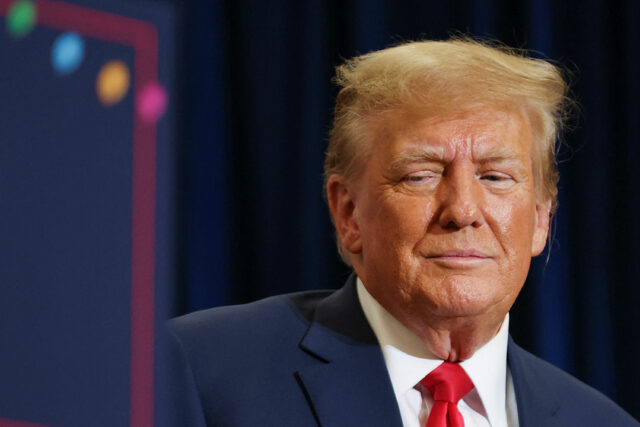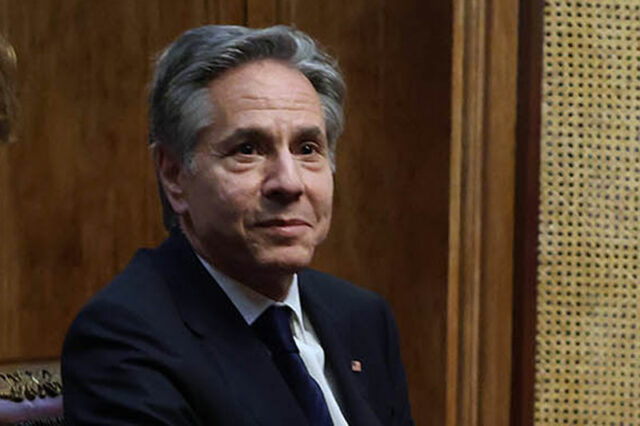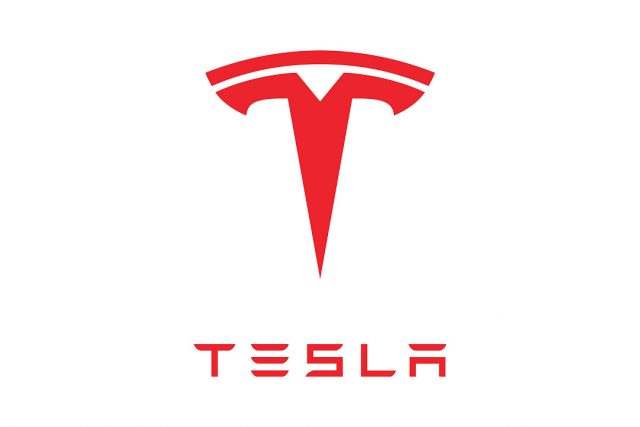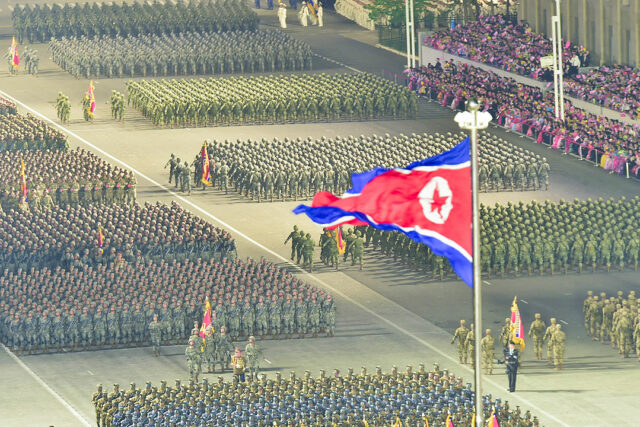NEW YORK — Protests against Israel filled streets in Brooklyn and escalated at universities across the United States, some of which included Jewish Passover Seders, as demonstrators demanded an end to civilian casualties in Gaza.
The growing protests follow mass arrests of demonstrators at some East Coast universities in recent days, and show a deepening dissatisfaction in the United States, historically Israel’s most important ally, with the course of the war with Hamas.
Pro-Palestinian protests have followed President Joseph R. Biden, Jr, a self-declared “Zionist,” for months. On universities, protests have recently grown to encampments that draw students and faculty of various backgrounds, including of Jewish and Muslim faiths, that host teach-ins, interfaith prayers, and musical performances.
A large Brooklyn street protest reached a standoff on Tuesday when New York police began to arrest people over disorderly conduct, restraining those who refused to move with zip ties.
The Council on American-Islamic Relations criticized the use of police force to stifle dissent, saying it undermined academic freedom.
“So does defaming and endangering Jewish, Muslim and Palestinian … students based on suspiciously inflammatory remarks that a few unidentified, masked individuals have made outside of campus,” Afaf Nasher, executive di-rector of CAIR in New York, said in a statement.
Critics of the protests, including prominent Republican members of the US Congress, have stepped up accusations of antisemitism and harassment by at least some protesters. Civil rights advocates, including the ACLU, have raised free speech concerns over the arrests.
There have been heated exchanges of words and insults between pro-Palestinian and pro-Israeli demonstrators, particularly in the public streets around Columbia, leading congressional Republicans on Tuesday to demand that Mr. Biden do more to protect Jewish students.
Several campus protesters Reuters spoke to attributed the off-campus incidents to rogue provocateurs who are trying to hijack the protests’ message.
“There are no universities left in Gaza. So we chose to reclaim our university for the people of Palestine,” said Soph Askanase, a Jewish Columbia student who was arrested and suspended for protesting. “Antisemitism, Islam-ophobia and racism, in particular racism against Arabs and Palestinians, are all cut from the same cloth.”
Other students blamed universities for failing to protect their right to protest or stand up for human rights.
“As a Palestinian student, I too did not feel safe for the past six months, and that was as a direct result of Columbia’s one-sided statements and inaction,” said Mahmoud Khalil, a Palestinian student at Columbia.
Students at the University of California, Berkeley — a school well known for its student activism during the 1960s — set up tents in solidarity with protesters at other schools.
Milton Zerman, 25, a second-year student at Berkeley’s law school, who is from Los Angeles, said Jewish and Israeli students have suffered from hateful harassment.
“When you’re an Israeli student on this campus, you feel like you have a target on your back, you feel unsafe and it’s no wonder students from Israel are so hesitant to come here,” Mr. Zerman said.
New York police arrested more than 120 protesters at New York University on Monday and more than 100 at Columbia University last week. Columbia canceled in-person classes at its Upper Manhattan campus on Monday in a bid to defuse tensions.
On Tuesday, Columbia said classes for the rest of the year would be hybrid, with students able to attend online or in person.
Later, the university’s president said it was time “to move forward with a plan to dismantle” the pro-Palestine encampment and gave organizers a midnight deadline to do so.
California’s Cal Poly Humboldt, a public university in Arcata, was shut down after pro-Palestinian protesters occupied a campus building.
At the University of Minnesota campus in St. Paul, police cleared an encampment after the school asked them to take action, citing violations of university policy and trespassing law.
PASSOVER PROTESTS
Some Jewish demonstrators said they were taking the second night of the weeklong feast of Passover, a holiday feast when families gather and celebrate the biblical account of the Israelites’ freedom from Egyptian slavery, to reaf-firm their faith and distance themselves from the Israeli government’s war strategy.
“I don’t see what Israel is doing as self-defense. I see incredible, absolutely unbelievable human rights violations,” said Katherine Stern, 62, of Woodstock, New York, who gave up her family Seder 120 miles (190 km) away to at-tend the Brooklyn protest.
Protesters want university endowments to divest from Israeli interests and the United States to end or at least condition Israeli military aid on improving the plight of Palestinians.
Hamas militants attacked Israel on Oct. 7, killing 1,200 and taking scores of hostages, according to Israeli tallies. Israel’s counterattack has killed over 34,000 people, according to the Palestinian health ministry, displacing nearly all of Gaza’s 2.3 million people and causing a humanitarian crisis.
In Brooklyn, about 2,000 people occupied a plaza near the Brooklyn home of US Senate Majority Leader Chuck Shumer, a staunch Israel supporter and the highest-ranking Jew in the US government, chanting, “Stop arming Isra-el,” “Stop funding genocide” and “Let Gaza live.”
Organizers staged music and song from Jewish and other cultures, giving prominence to Canadian author Naomi Klein, a peace activist who drew on her Jewish roots to argue against Zionism, which she called a “false idol.”
“We want freedom f rom the project that connects genocide in our name,” Klein said to cheers. “We seek to migrate Judaism from an ethnostate that wants Jews to be perennially afraid… or that we go running to its fortress, or at least keep sending them the weapons and the donations.” — Reuters

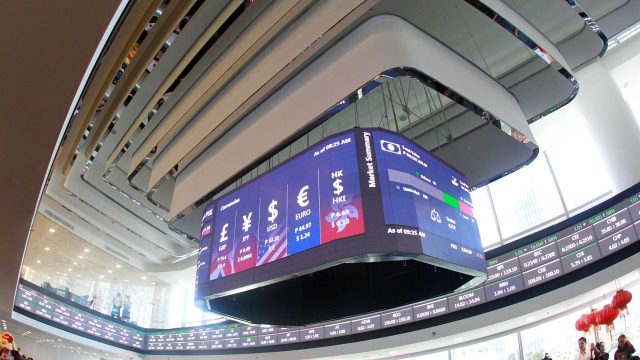
![state-of-the-union-9b98ab [picryl]](https://www.bworldonline.com/wp-content/uploads/2024/04/state-of-the-union-9b98ab-picryl-640x427.jpg)
